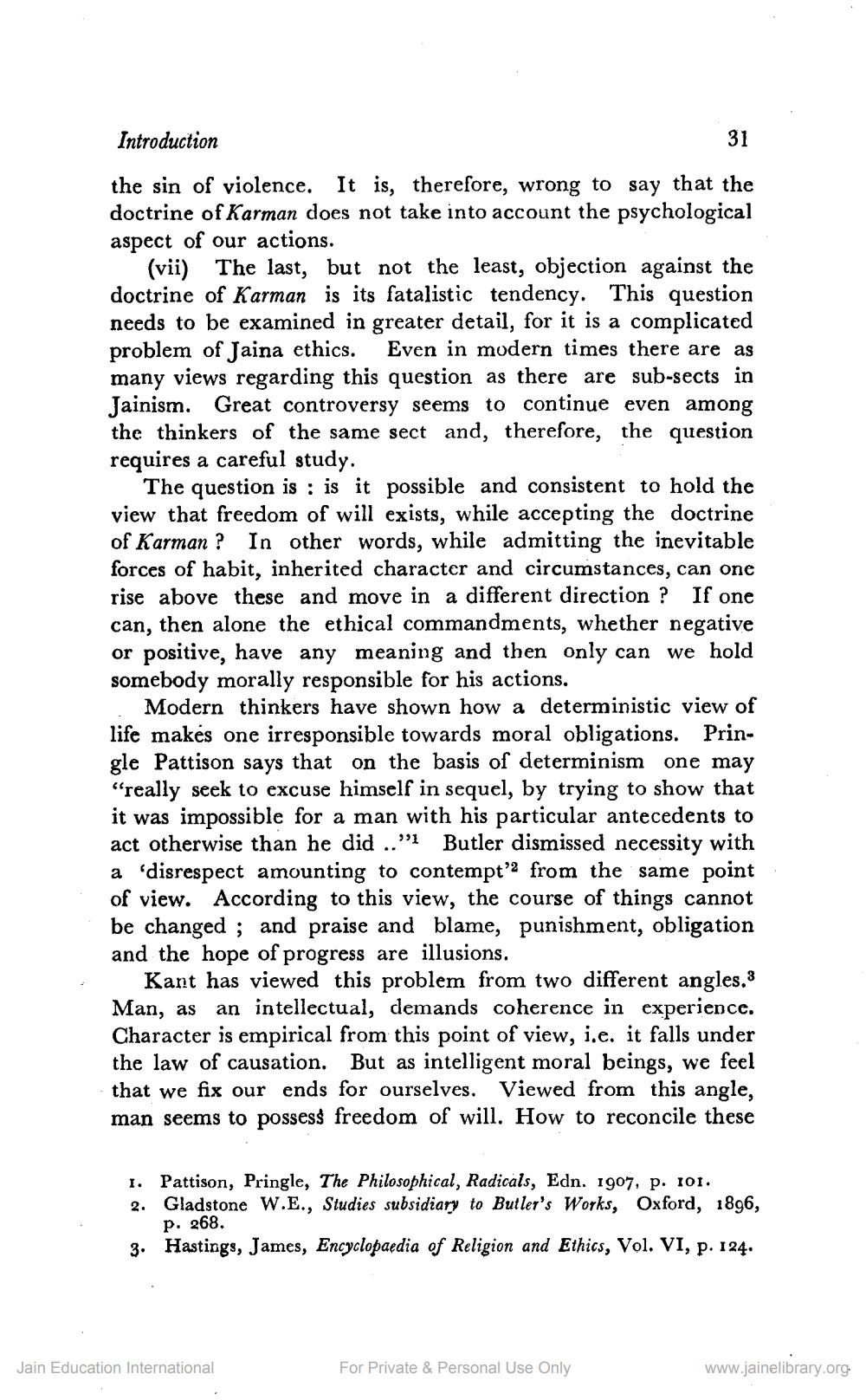________________
Introduction
31
the sin of violence. It is, therefore, wrong to say that the doctrine of Karman does not take into account the psychological aspect of our actions.
(vii) The last, but not the least, objection against the doctrine of Karman is its fatalistic tendency. This question needs to be examined in greater detail, for it is a complicated problem of Jaina ethics. Even in modern times there are as many views regarding this question as there are sub-sects in Jainism. Great controversy seems to continue even among the thinkers of the same sect and, therefore, the question requires a careful study.
The question is : is it possible and consistent to hold the view that freedom of will exists, while accepting the doctrine of Karman ? In other words, while admitting the inevitable forces of habit, inherited character and circumstances, can one rise above these and move in a different direction ? If one can, then alone the ethical commandments, whether negative or positive, have any meaning and then only can we hold somebody morally responsible for his actions.
Modern thinkers have shown how a deterministic view of life makes one irresponsible towards moral obligations. Pringle Pattison says that on the basis of determinism one may “really seek to excuse himself in sequel, by trying to show that it was impossible for a man with his particular antecedents to act otherwise than he did .." Butler dismissed necessity with a 'disrespect amounting to contempt from the same point of view. According to this view, the course of things cannot be changed ; and praise and blame, punishment, obligation and the hope of progress are illusions.
Kant has viewed this problem from two different angles.3 Man, as an intellectual, demands coherence in experience. Character is empirical from this point of view, i.e. it falls under the law of causation. But as intelligent moral beings, we feel that we fix our ends for ourselves. Viewed from this angle, man seems to possess freedom of will. How to reconcile these
I. Pattison, Pringle, The Philosophical, Radicals, Edn. 1907, p. 101. 2. Gladstone W.E., Studies subsidiary to Butler's Works, Oxford, 1896,
p. 268. 3. Hastings, James, Encyclopaedia of Religion and Ethics, Vol. VI, p. 124.
Jain Education International
For Private & Personal Use Only
www.jainelibrary.org




